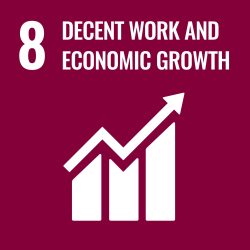Sustainable Global Trade
Having developed several innovative, proprietary frameworks and tools, Global Trade Department is leading the way in empowering SMEs to adopt sustainability as a pillar of growth in their global trading endeavours, be they import or export focused.
Sustainability and climate change are set to completely transform trade liberalisation and the globalisation landscape over the coming years; companies need to be prepared for this. It can be easy to think of sustainability as being a government responsibility where little is achieved without legislation or large corporations implementing radical changes; or through the lens of global trade, without widespread inclusion of environmental provisions in bilateral and regional trade agreements, with punitive action associated with non-compliance. However, to think like this is to miss a golden opportunity. There are almost 6 million SMEs in the UK, and approx. 213 million globally, with most OECD countries reporting that they contribute anywhere between 50% and 70% of GDP – just think of that ‘collective power’.
Instead of questioning what is achievable without large scale government legislation and corporate buy in, question whether anything is truly achievable without the understanding and commitment of the world’s SMEs. Adopting sustainability as a pillar of business growth can lead to innovation and competitive advantage for SMEs as well as the ‘feel good’ factor that they are contributing to a more sustainable and prosperous world for all. But the truth is, as small cogs in large supply chains, SMEs will sooner or later be forced to follow stringent sustainability requirements like reporting on labour practices, reducing carbon emissions, reducing use of harmful materials, etc. or quickly be left behind. We have also witnessed in recent years the emergence of the socially conscious consumer and client who actually care about issues like human rights and eliminating slavery; and who would rather pay a premium for a product that protects nature than a lower price for one that contributes to its destruction. All of these factors and more impact SMEs, but ever move so, SMEs trading globally, be that importing or exporting.
Quite apart from the commercial benefits companies can derive from truly embracing sustainability, it is now more than ever, paramount to the future of our planet. Latest figures (below) are alarming:
Global Warming
Globally, ocean temperatures are predicted to increase by 1-4 °C by 2100
Combined land and ocean temperature has increased at an average rate of 0.08 °C per decade since 1880
Since 1900, sea levels have risen faster than in any preceding century in at least the last 3,000 years
The United Nations Conference on Trade and Development (UNCTAD), a UN body responsible for dealing with development issues, particularly international trade, lays out a number of Sustainable Development Goals (SDGs) in its 2030 Agenda for Sustainable Development. This framework is essentially a global plan to address three pillars of sustainable development, namely economic, social and environmental; successful implementation will require unprecedented cooperation among all actors at national and international levels i.e. private sector and civil society.
The 2030 Agenda for Sustainable Development acknowledges that global trade has served to lift millions out of poverty and remains a significant engine for inclusive economic growth and poverty reduction, whilst also enabling the achievement of SDGs. The principal levers for change within the area of global trade are below:









In response to this growing imperative, Global Trade Department has developed several innovative frameworks and tools to help UK international traders not only assess their current mode of operating through the ‘sustainability lens’, but also guide them towards adopting sustainable trade practices that will serve to gain competitive advantage and futureproof growth in light of future legislative changes globally.
There is no doubt that climate awareness and pressure is mounting; the Paris Agreement and latest COP summit have further raised the topic amongst environmentally conscious businesses and consumers. Global traders for whom sustainability is a core part of their ethos, are also becoming more educated about carbon emissions in international trade and how that impacts the climate crisis.
Conducted virtually, our assessment explores your company’s environmental, social, and economic impact, together with its governance framework and importantly its stance, strategy, and activity across these areas globally. We use a proprietary methodology incorporating carbon literacy, sustainability reporting, supply chain mapping, renewables, ethical supply, diversity, and much, much more.
Resources
Sustainability, especially when considered through the lens of Global Trade, is both complex and wide-reaching. For companies looking to gain greater insight and knowledge in this are, we have collated some external data sources that may just help inform your thinking and provoke ideas.













